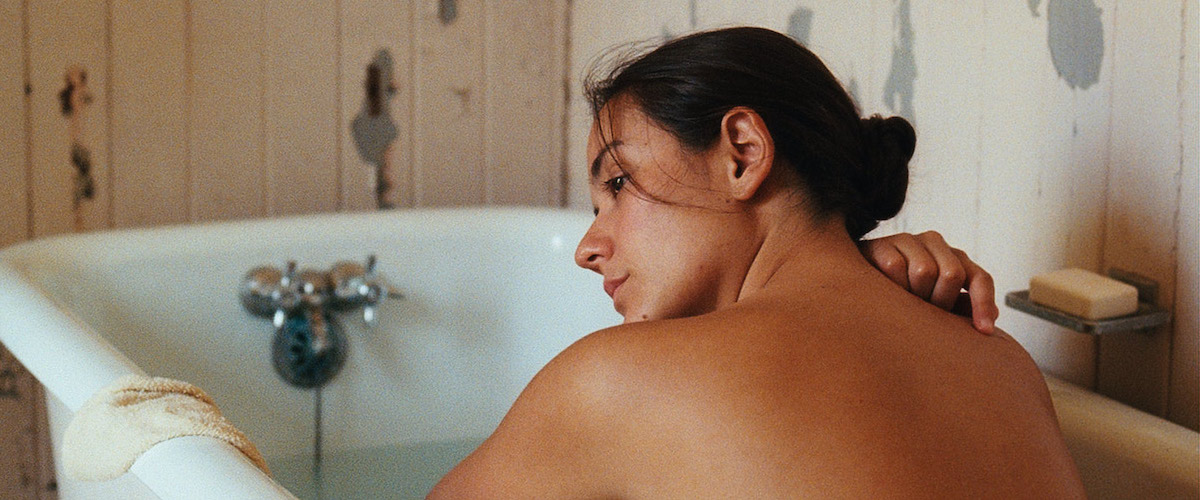A consistent—almost catalog-like, you might say—array of pictorial wonders, “Medeas,” the debut feature from the Italian-born director Andrea Pallaoro is also a work of considerable daring. This plain, almost minimalist narrative presents itself from a position that neither talks down to nor attempts to cozy up to its audience. Set in a sun-drenched setting that suggests Southern California and/or Mexico, the movie opens with a relatively idyllic moment for the family that is its subject. In a swimming hole, father Ennis (Brian F. O’Byrne) is bent over holding his breath underwater as two of his young sons watch. High-spirits continue as they come to ground, and pose for a snapshot with mom Christina (Catalina Sandina Moreno) and the other three kids in their brood, who range in age from teen to infant.
O’Byrne looks a bit more like a cattle rancher than Moreno looks like a mother of five, but not that much, and anyway I oughtn’t generalize, particularly in a way that might be construed as sexist. My point, such as it is, is that everyone in this movie looks real good. Ian Nelson, who plays teen son Micah, who likes to draw tattoos on his arms with a ballpoint pen, is particularly well-coiffed, in an Abercrombie way even. So “Medeas” reads almost immediately as a kind of fable rather than a work in a realistic mode. About fifteen minutes in, the viewer learns that Christina is so quiet because she’s literally mute. One doesn’t, on the other hand, learn precisely when this movie is set. There’s one scene in which the family tries to watch a black-and-white television and one member is moving it around the room to get the best antenna feed; in a scene a little later one, the sole smart-ass among the children informs a younger sibling that “Mom has AIDS.” Okay, then.
At other points in the film it comes to light that Ennis is in a lot of debt, that Christina is carrying on an affair, and that those children in the household who are in a position to commit acts of rebellion from the family are doing so. Things are not well, and if you glom that the movie’s title is a plural of a Greek Classical Allusion, you have an idea that it’s all coming to a bad end. But it’s getting there in a very visually beautiful way. The family is one of modest means, but it dwells in a space where even the paint on the bathroom walls peels off in a picturesque fashion. Cinematographer Chayse Irvin is clearly something of a virtuoso, thriving in both bright panoramas and shadowy corners. Pallaoro’s imagery sometimes suggests Kubrick, sometimes Terrence Malick, and sometimes other American Classics: there’s one shot near the end that practically screams “Christina’s World.” And while it should be clear that my own feeling is that he lays this stuff on a little thick, to his credit he never wanders into fashion magazine territory.
By the same token, his good fine art taste also seems to restrict him a bit. As the story went on in its deliberate way, the rage that builds in certain characters is kept at a remove; Pallaoro seems too polite, too discreet, to bring the galvanic kind of emphasis the story seems to call for. Another director that came to mind as I watched was Mexico’s Carlos Reygadas, a fellow who, it occurred to me, would take to the fatalism of the material with a relish. Pallaoro can’t seem to muster any such thing, and so at the end, I felt suspended between “so beautiful” and “so what.” (Sorry for lifting your phrase, Paul Simon.)




















